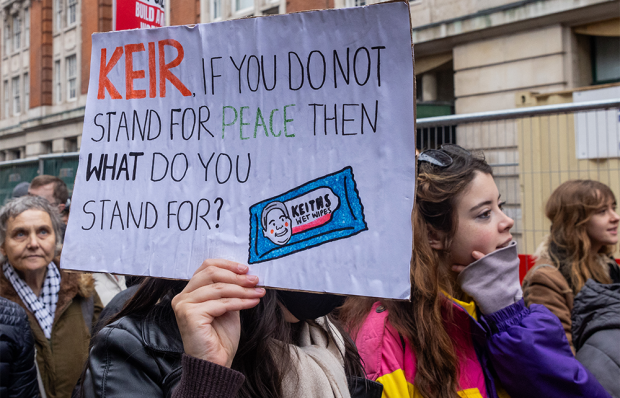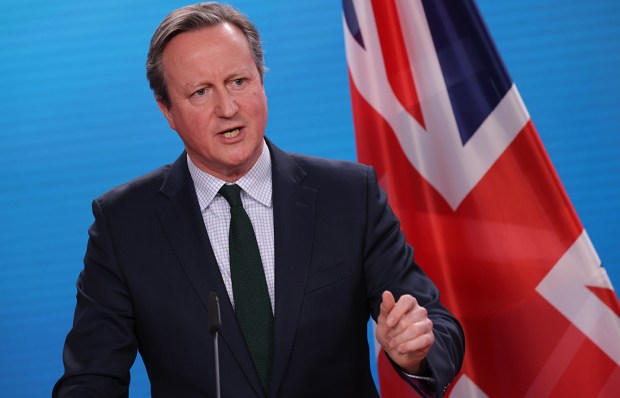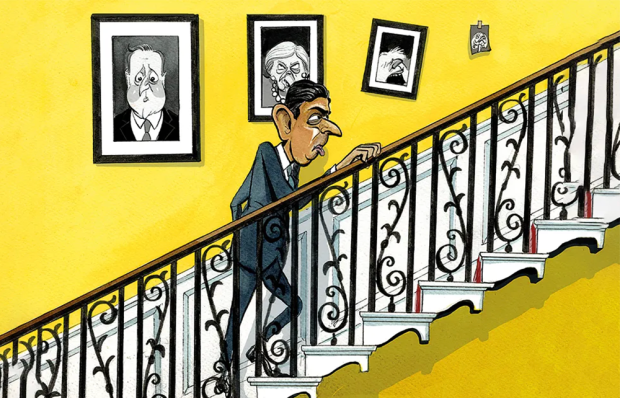This week’s truism: all top-down attempts at leftie social engineering end up causing rather more misery and injustice than the misery and injustice they were designed to alleviate. This is chiefly because they come up against that most un-leftie of things, reality – but also because liberals are incapable of looking at actual outcomes and are able only to wring their hands in despair and wish for stuff. The world is not an ideal place and attempts to pretend they can make it so are always misbegotten.
The most obvious example of this is in that most explicitly iniquitous of things, affirmative action – or, as we call it over here, ‘positive discrimination’. The American media and our own, reliably stupid, BBC were beside themselves with fury when the US Supreme Court recently ordered that race should no longer play a part in deciding if a candidate should get into a decent university. Over the pond, the furore continues – but the truth is that it has been a long time coming, this re-reckoning. The obvious injustices occasioned by affirmative action have festered for decades. Back in 1996, the Stanford Magazine – house organ of one of the most liberal educational institutions in the country – printed an article by David Sacks and Peter Thiel which summed up the problem: ‘Originally conceived as a means to redress discrimination, racial preferences have instead promoted it. And rather than fostering harmony and integration, preferences have divided the campus. In no other area of public life is there a greater disparity between the rhetoric of preferences and the reality.’
Why should the under-qualified son of a black doctor or lawyer be given preferential treatment over the well-qualified daughter of a Vietnamese boat person, they asked – a question which the left can never answer, because it is unanswerable. More than ten years before Sacks and Thiel wrote their piece, the sociologist Charles Murray predicted that affirmative action would cause misery and injustice for everyone, including the very people – black Americans – it was set up to benefit. And so it did. The real issue with affirmative action is the most basic one of all: if you are opposed to discrimination on the grounds of skin colour, then you should be opposed to affirmative action. No matter how impassioned the arguments in favour, that simple statement – that it was, in itself, racist – remained for the majority of people sufficient reason to take against it. You do not combat injustice with injustice.
Then there is the vexed issue of rape. Andrew Malkinson, a security guard born in Grimsby, was recently let out of prison after serving 17 years for a crime he did not commit. He had been convicted of rape but always maintained his innocence (hence the length of his sentence) and was finally cleared when DNA evidence proved he was not the man who had committed the crime.
In the year that Malkinson was convicted, 2004, the then solicitor-general, Harriet Harperson, was on the rape warpath, determined that more men should get locked up for this horrible crime, perhaps even if they had not committed it. In a launch of the Crown Prosecution Service’s new policy on sexual offences, she told an audience that the rules were changing and that among other things, henceforth: ‘There will be a presumption – rebuttable of course – that the victim did not consent where she (or he) was asleep, unconscious, held against her will or threatened with violence.’ She added that the various changes were not being done for ‘reasons of political correctness’. But they were. They were certainly not being done to improve justice.
For years, the left and especially the feminist left had argued – much as did Harperson in her address – that too few rapes were being reported, prosecuted and resultant in a conviction. This was the fault of men, the police, juries, society – in other words, the world. Juries in particular needed to get with the programme and not be guided by ‘myths’ about rape – even though there was no great indication that the miscreant juries were doing anything more wicked than listening to the evidence and weighing up the probabilities, as they do when considering every crime that comes before them. There was pressure on the police to make more prosecutions, and later came the injunction that women were to be unquestioningly believed by officers when they alleged that they had been raped, thus removing from the police the ability to cast a dispassionate eye over the allegations before them.
Later still, in this war against justice and rationality, the CPS decided that if a man had sex with a woman who was drunk, or even tipsy, then that was rape – even if he himself was drunk. The majority of the public did not go along with these idiocies and so juries, in the first decade of the present century, continued to acquit when they thought the prosecution’s evidence was remiss. This led to an even smaller percentage conviction rate for the offence, because more cases were being prosecuted but about the same number of convictions were recorded each year.
More to the point, the police were still under pressure to push ahead with bringing rape cases to court. I suppose Harperson is not directly responsible for what ensued here, but this approach did help to facilitate miscarriages of justice. In Malkinson’s case, the police, desperate to improve their rape conviction stats, deliberately withheld evidence which might have cast much graver doubt on the safety of his conviction. This has happened in several rape cases since 2004. When you politicise a crime, as happened with rape and sexual assault, all kinds of problems occur and most of those result in an injustice being done to someone, somewhere.
Got something to add? Join the discussion and comment below.
Get 10 issues for just $10
Subscribe to The Spectator Australia today for the next 10 magazine issues, plus full online access, for just $10.
You might disagree with half of it, but you’ll enjoy reading all of it. Try your first month for free, then just $2 a week for the remainder of your first year.















Comments
Don't miss out
Join the conversation with other Spectator Australia readers. Subscribe to leave a comment.
SUBSCRIBEAlready a subscriber? Log in